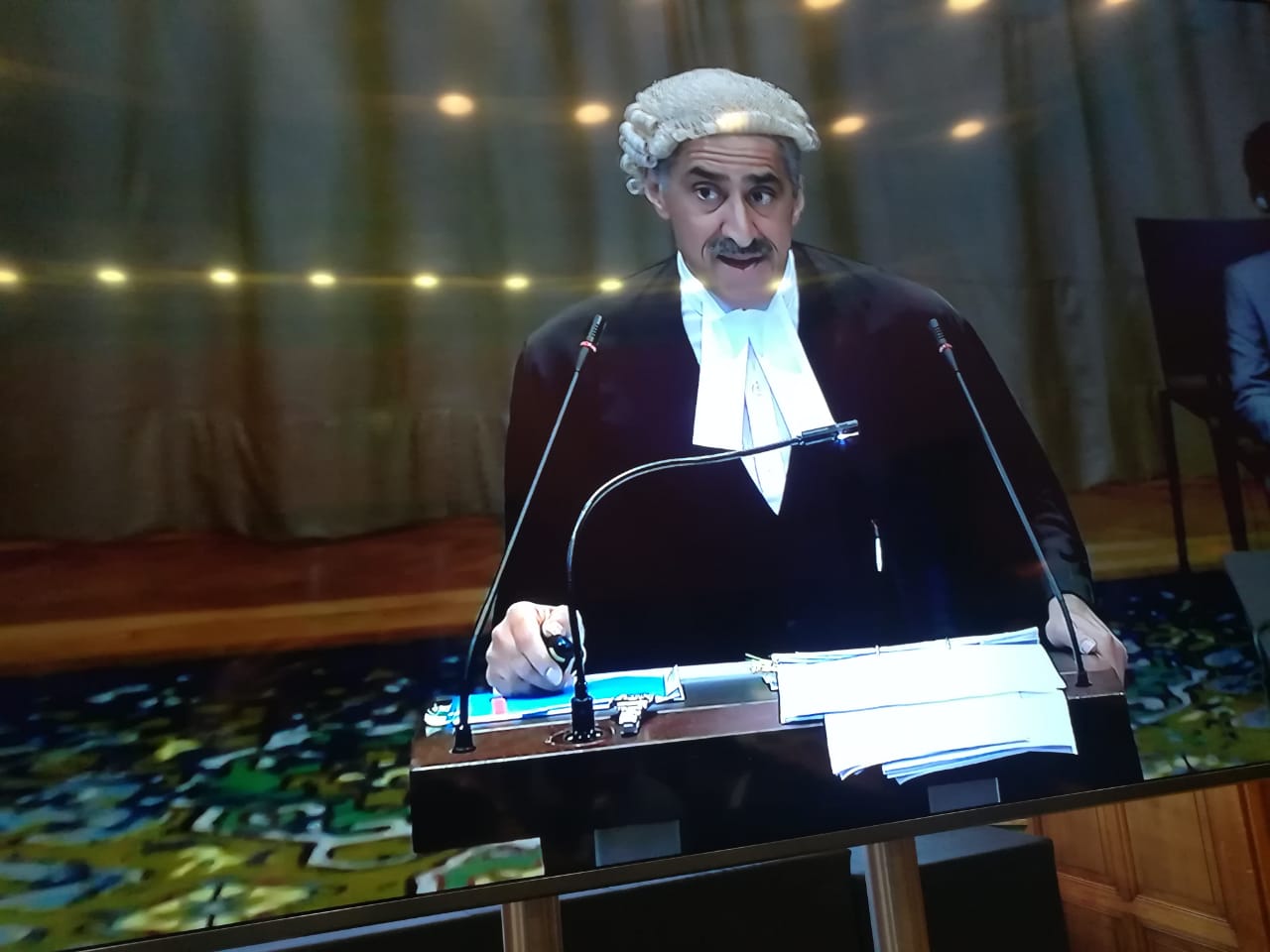
Queen’s counsel and legal advisor to Pakistan, Khawar Qureshi, argued that by sending a spy New Delhi violated the Vienna Convention.
He maintained that Jadhav’s confessional statement in the case is very important. Qureshi asked the court what explanation does the Indian government have for Jadhav’s Pakistani passport bearing a Muslim name.
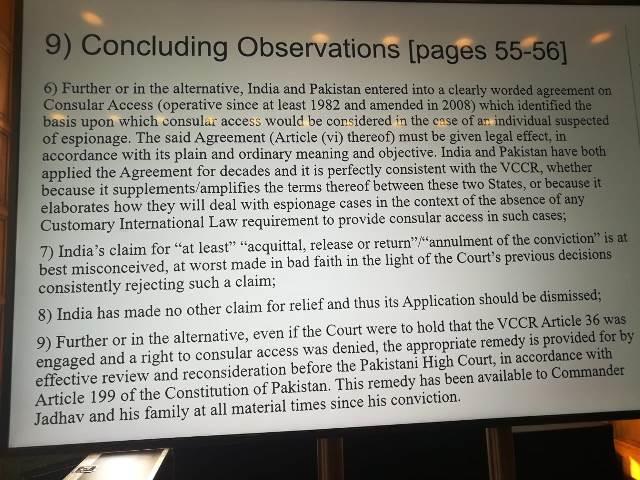
Qureshi stated that Jadhav’s presence in Pakistan along with two passports was evidence that he was spying in the country.
Dismissing the Indian narrative that Jadhav was arrested from Iran Qureshi said that he was detained from Balochistan. “India has exhibited untrustworthiness during the Kulbhushan probe,” he said.
Qureshi further argued why India had not provided any evidence of Jadhav’s Indian nationality.
ICJ to hold public hearings in Jadhav case from Feb 18
He said that under the Constitution Pakistan all accused and are given the right to defend themselves but also added that under the Vienna Convention individuals who are charged with espionage do not have a right to access to a counsellor.
“Unlike the Indian authorities no one in Pakistan made irresponsible statements about the case.”
Qureshi said that during a weekly press briefing in 2017, India’s Foreign Office had confessed that there is a bilateral agreement between both the countries regarding consular access singed in 2008.
He further said that Indian authorities failed to respond to Pakistan’s queries in the case.
Qureshi told the court that India’s claim of not letting them appeal against a military court ruling is baseless. He added that in light of the recent Peshawar High Court ruling Jadhav has the right to appeal. He further said that recently the PHC set aside a military court ruling and acquitted 70 people.
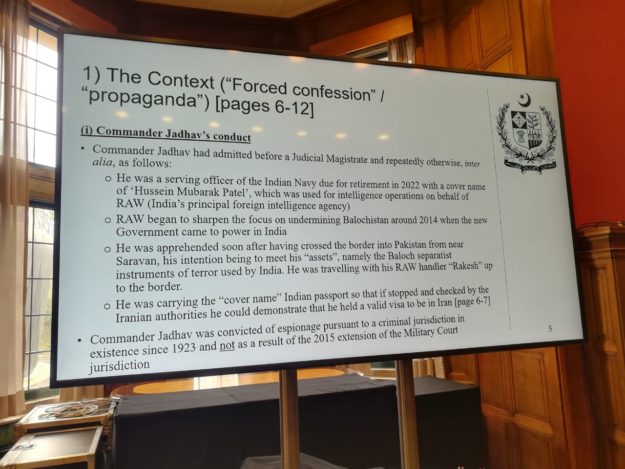
Elaborating how the military courts works, the Queen’s counsel and legal advisor to Pakistan said they worked very similarly to the civilians courts in most countries.
Presenting his arguments, Attorney General Anwar Mansoor Khan said that India has backed and funded terrorist activities in Pakistan.
Attorney General Anwar Mansoor Khan added that India-backed terrorist elements and sent spies in Pakistan. “Pakistan is fighting the war against terrorism despite being a victim of terrorism.”
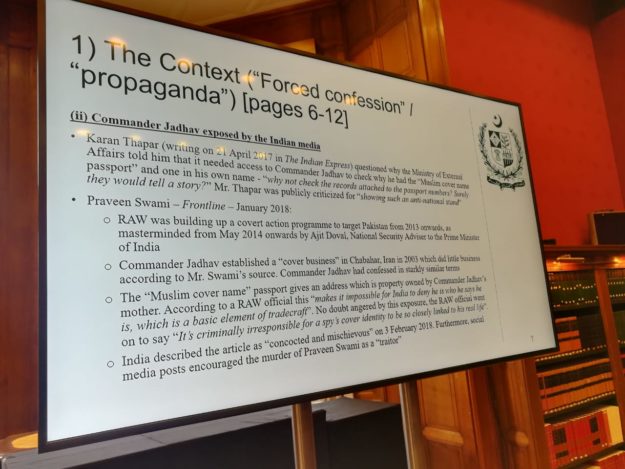
Jadhav was captured in Balochistan in March 2016. He confessed to his association with the Indian intelligence agency - Research and Analysis Wing (RAW) — and his involvement in espionage and fomenting terrorism in Pakistan. Subsequently, the 48-year-old was sentenced to death by a Pakistani military court on charges of spying and terrorism in April 2017. In May 2017, India moved the ICJ against the verdict.
A delegation led by the attorney general of Pakistan and comprising Foreign Office Spokesperson Dr Mohammad Faisal, Director Foreign Affairs Fareha Bugti, Pakistan’s Ambassador to the Netherlands Shujjat Ali Rathore and others is representing Pakistan's case.
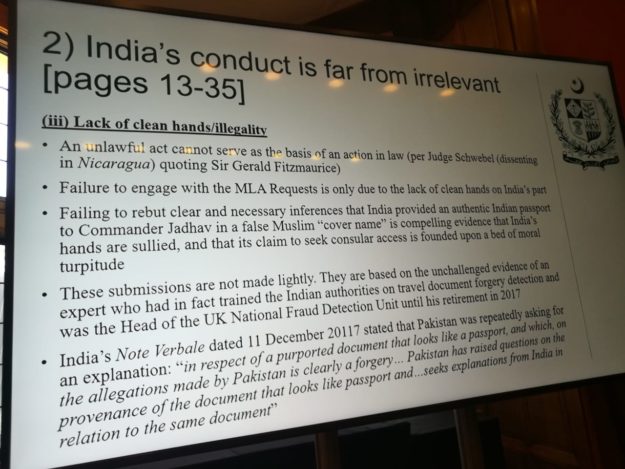
Indian Ministry of External Affairs officials Deepak Mittal, VD Sharma, S Senthil Kumar and Sandeep Kumar, and India’s Ambassador to the Netherlands Venu Rajamony comprise India’s delegation at the ICJ.
“At no point in time has India furnished any evidence that Jadhav is an Indian national despite repeated requests," Pakistan maintained at the ICJ hearing.
“At no stage can India say that Pakistan engaged in any clear and equivocal representation made directly to India (with the intention of effect that India detrimentally relied upon) to the effect that India waived the requirement for India to establish the Indian nationality of Jadhav.”
The attorney general recalled militant attacks in Karachi. “New Delhi is using Afghan soil to propagate violence across the border.
“Indian National Security Advisor Ajit Deol makes no secret of his plans to foment and foster unrest in Pakistan through Indian spy agencies by applying – what he called – a double squeeze strategy. The Indian petition at the ICJ is a classic example of the old adage that the mouth prays to Buddha but the heart is full of evil.”
“The unlawful actions of India have also proven that India has been using Afghanistan as a “second front” at the western border of Pakistan – as has been said by ex-United States Defence secretary Chuck Hagel in a 2011 speech at the Oklahoma University.”
“Jadhav planted several local residents, collaborators, co-conspirators, non-state actors – as integral part of a network to carry out acts of despicable terrorism and suicide bombings, target killings, kidnapping for ransom and targeted operations to create unrest and instability in the country.”
“Pakistan, as consequence of Indian interferences along with others, is a major victim of terrorism… In this context, Jadhav, a serving officer of Indian Navy working with RAW, entered Pakistan with a predetermined aim on the instructions of the Government of India to assist, plan and cause terrorism in Balochistan and Sindh and other places in the country.”
Khan stressed that Jadhav had admitted it before a judicial magistrate.
“India, contrary to all international laws and norms, interferes by training and arming anti-Pakistan militia.”
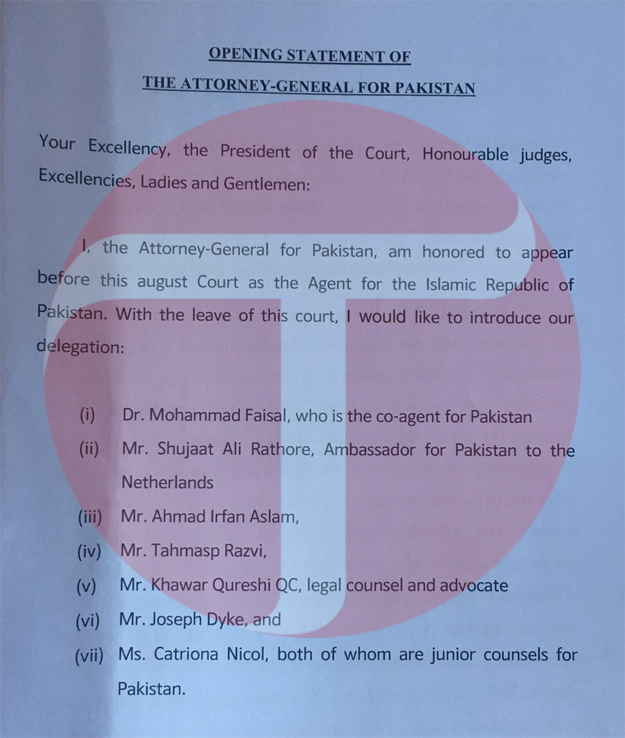
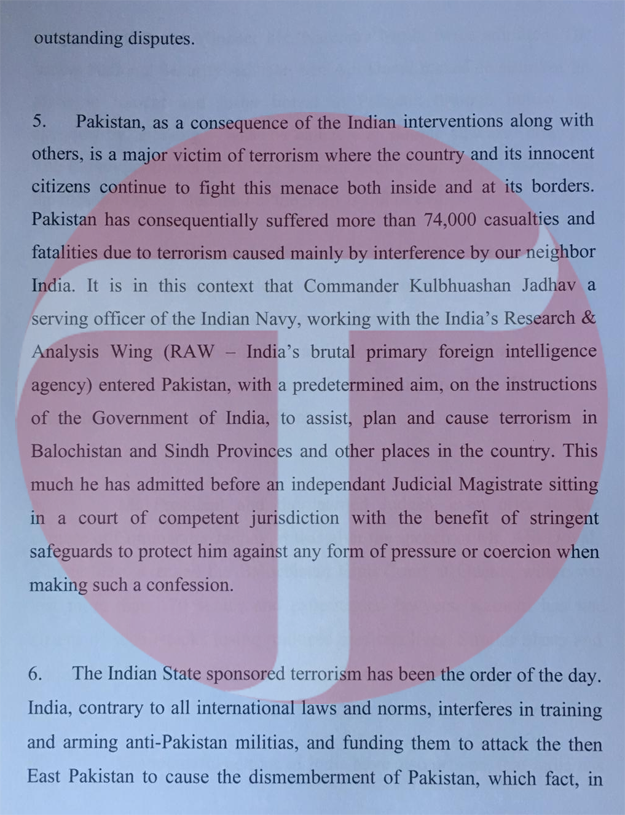
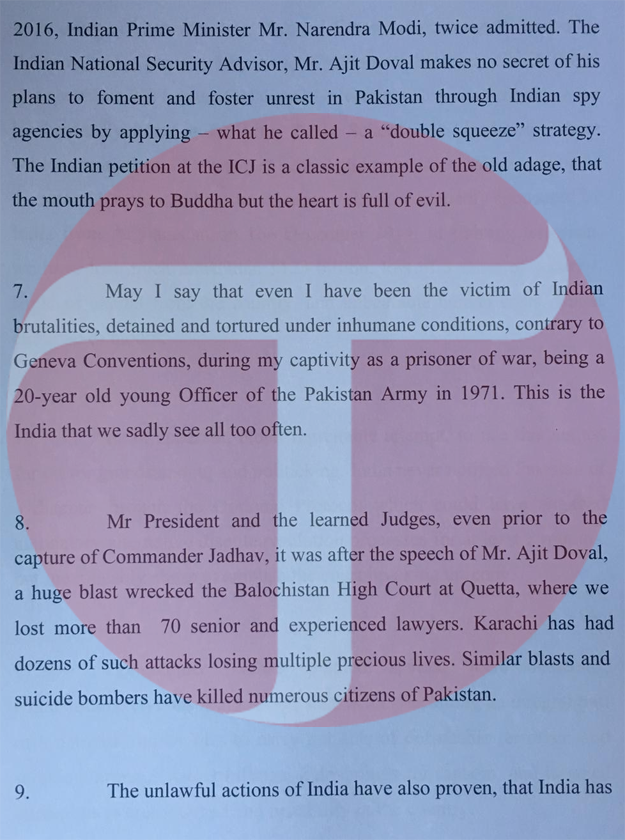
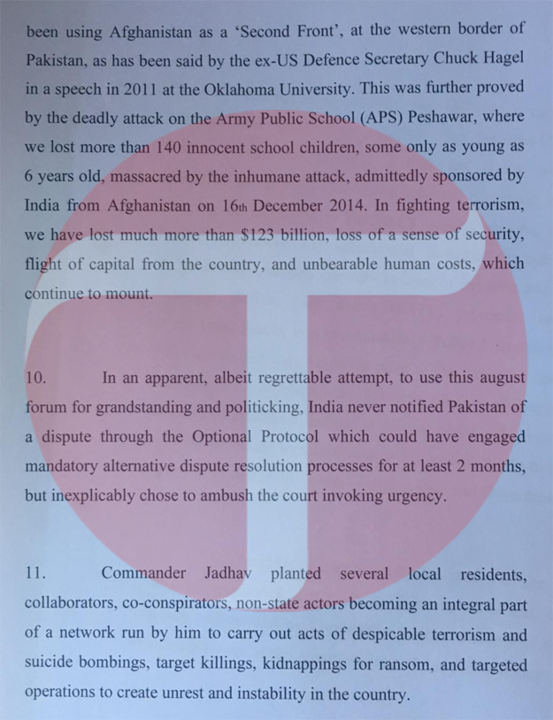
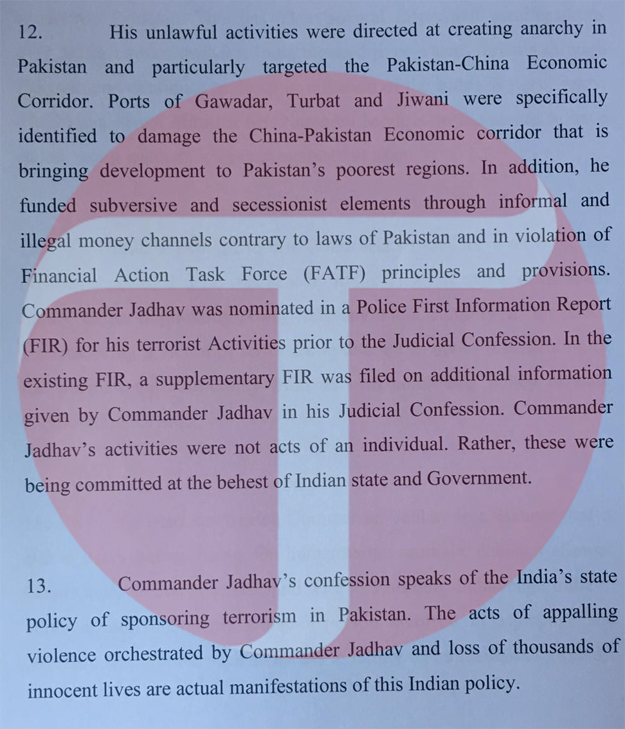
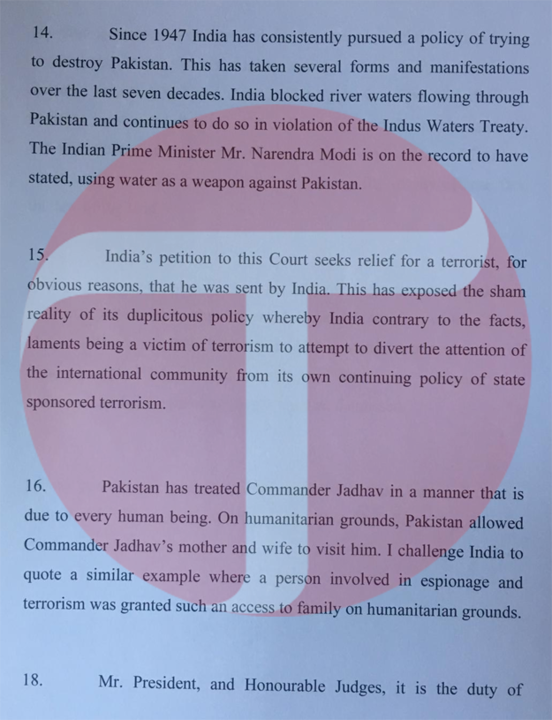

1725612926-0/Tribune-Pic-(8)1725612926-0-165x106.webp)







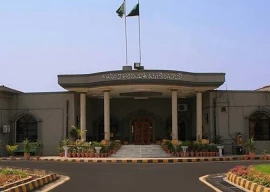







COMMENTS
Comments are moderated and generally will be posted if they are on-topic and not abusive.
For more information, please see our Comments FAQ